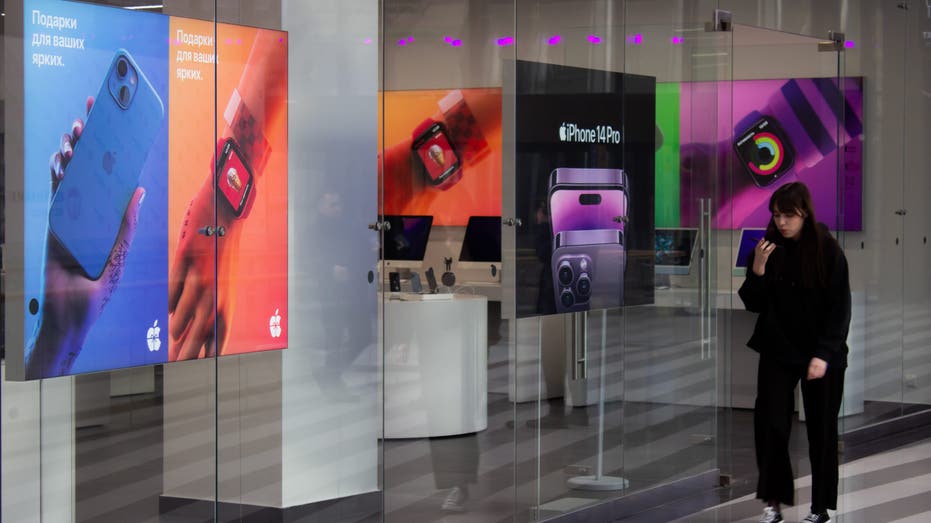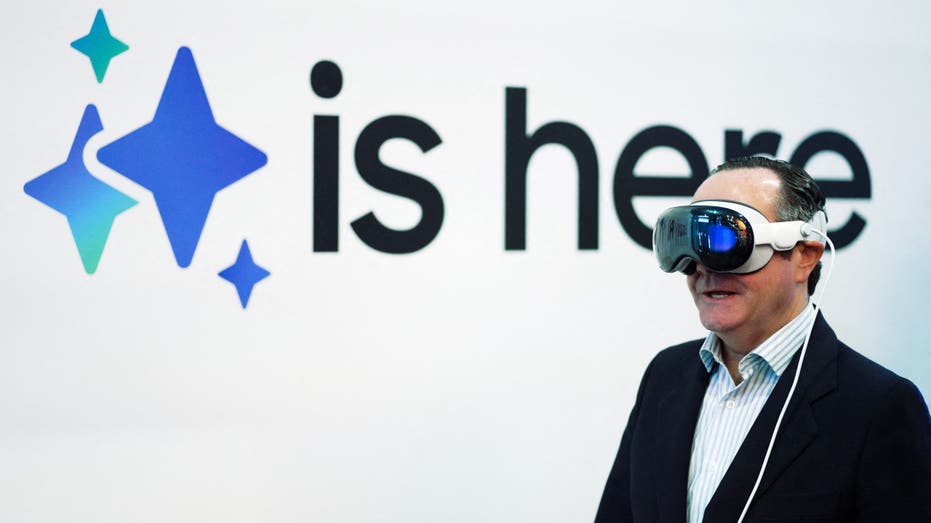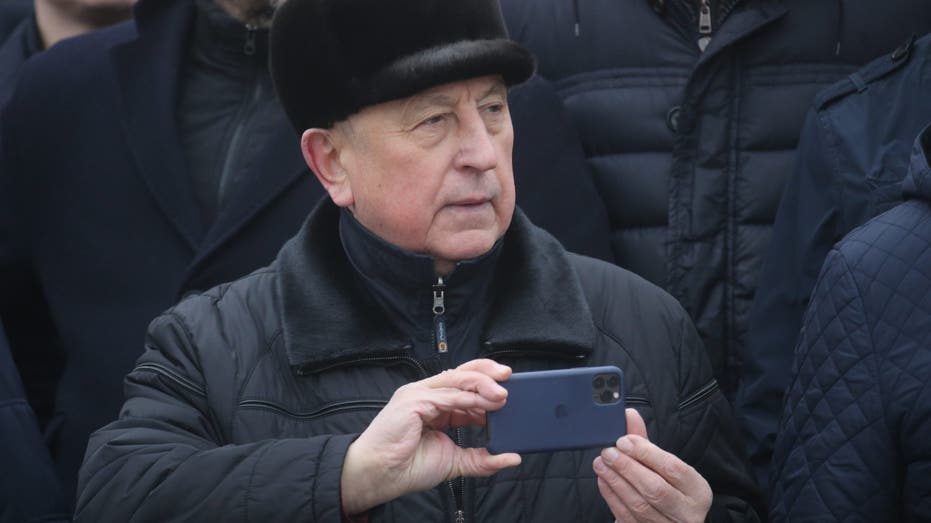Apple products, including Vision Pro, still available in Russia despite company's export ban: report
iPhone products remain very popular among even Russian government officials
Newest US sanctions on Russia 'are like swiss cheese': Gov. Doug Burgum
North Dakota Gov. Doug Burgum and former Texas Gov. Rick Perry sound off on 'Kudlow' as foreign oil traders 'run rings around' US.
Apple products, including the new Vision Pro headset, have turned up in Russian stores despite the company's ban on exporting products to the country following the start of the Ukraine invasion.
The official Apple website in Russia remains offline, displaying only an animated Apple logo and a message in Russian saying, "The Apple Store is currently closed," but business for Apple products continues to boom among third-party retailers.
Apple did not respond to a Fox News Digital request for comment, but an Apple spokesperson previously had said that the Apple Vision Pro is "only available at Apple Retail stores in the U.S."
The device, launched in the U.S. on Feb. 2, has turned up in stores belonging to Russian consumer electronics chain M.Video-Eldorado, according to Reuters. The iPhone 14 and 15 also previously made their way to Russian markets despite Apple’s edict to end sales to the country.
Moscow deployed "grey markets" that utilized "parallel imports" that allowed retailers to import products without the trademark owner’s permission. The policy aimed to mitigate the impact of severe sanctions leveled against Russia following its invasion of Ukraine.

A woman walks past a Re:Store boutique at a shopping mall in Moscow on March 13, 2023. (Vlad Karkov/SOPA Images/LightRocket via Getty Images / Getty Images)
"This approach will guarantee the shipment of goods to our country…in spite of the unfriendly actions of foreign politicians," Russian Prime Minister Mikhail Mishustin said of the move at the time, adding that the Ministry of Industry and Trade would soon produce a list of accepted parallel imports.
M.Video-Eldorado touted its ability to "introduce Russians to the latest innovations in the world of gadgets," with customers able to personally test the products before buying them, indicating no short supply of the Vision Pro, which retails at $3,500 in the U.S. but at nearly double that cost in Russia.
Sergey Romantsev, a Russian tech blogger, told CNBC that the process of getting the product around the sales ban was "nothing complicated." People buy the product stateside and simply bring it with them on a trip to Russia via Turkey.

A man uses Apple Vision Pro mixed reality glasses by Apple Inc. at the Mobile World Congress, the telecom industry's biggest annual gathering, in Barcelona, Spain, Feb. 27, 2024. (Pau Barrena/AFP via Getty Images)
"Through New York, Istanbul, Moscow, we brought Vision very quickly," Romantsev wrote in an email exchange with the outlet.
"Officially, Apple does not sell anything in Russia. Russian companies buy equipment in other countries and bring it to their stores," he explained. "This has led to a huge increase in prices, so Vision Pro in Moscow costs not $3,500 but $5,000."
LAW PROFESSOR FEARS CYBERATTACKS WILL ‘INCREASE, CONTINUE’ IN WAKE OF PHARMACY, AT&T OUTAGES
Romantsev insisted that Apple remains popular in Russia, and consumers remain willing to pay over the odds to get the newest products, making it difficult to obtain them even with the inflow of third-party vendor help.

The Russian Communist Party's candidate for the 2024 presidential elections, Nikolay Kharitonov, holds his iPhone during a flower laying ceremony at the Hero City Stalingrad monument, marking the Defender of the Fatherland's Day on Feb. 23 2024, in M (Contributor/Getty Images)
The popularity led to Russia’s Federal Security Service (FSB) issuing a crackdown on government officials using iPhones over fears of American espionage, according to The Financial Times.
GET FOX BUSINESS ON THE GO BY CLICKING HERE
"Security officials in ministries — these are FSB employees who hold civilian positions such as deputy ministers — announced that iPhones were no longer considered safe and that alternatives should be sought," a person close to a government agency that banned Apple products told the Financial Times.
The personal use of Apple products is allowed, the outlet claimed – similar to bans in the U.S. on China’s Huawei products, also due to espionage concerns.





















